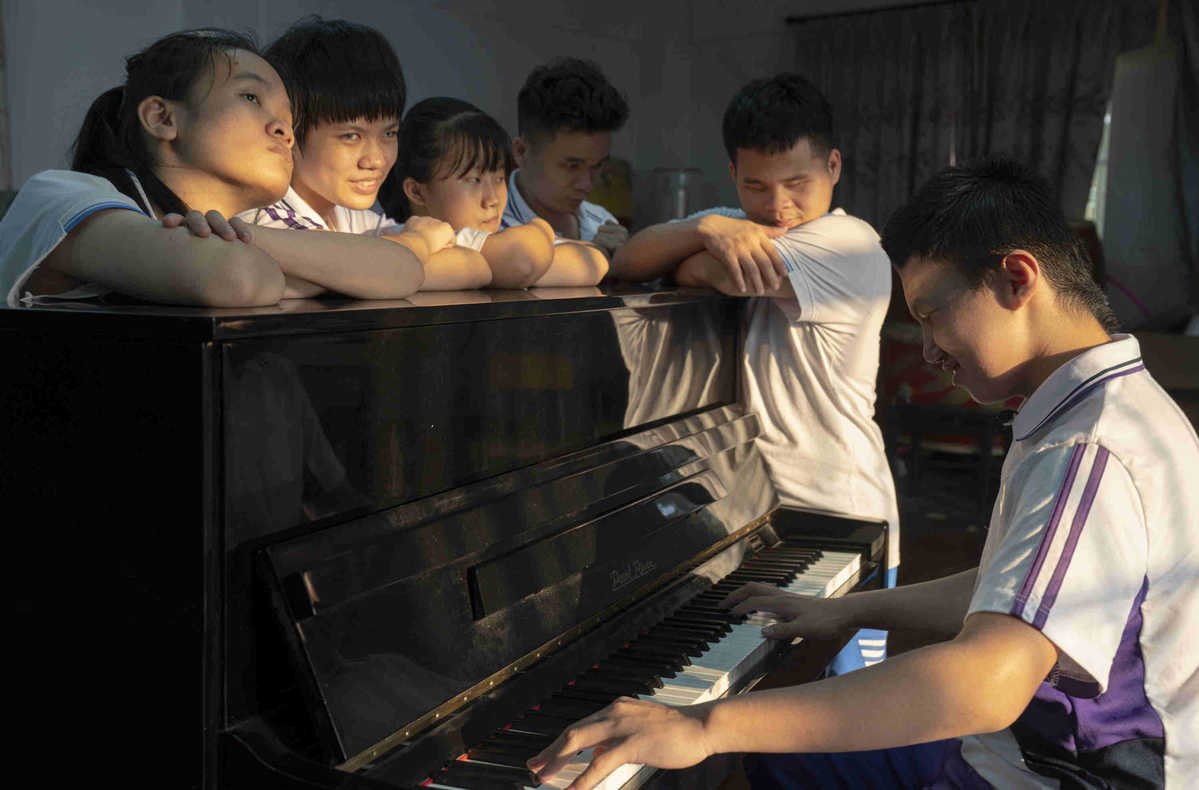New doors open for blind, visually imparied


Emerging barrier-free technologies offer better quality of life
At 3 pm on a recent afternoon, 30-year-old Xiao Jia pulled back the curtains in her Beijing apartment, allowing warm sunshine to fall on 200 newly purchased lipsticks laid neatly in rows on the floor.
Xiao, who is blind, took out her phone and began a video call with a young woman, asking her: "Let me guess the color of this lipstick. Is it intense cherry red, or brilliant ruby? Is the color number 804 or 806?"
The recipient of the call smiled and gave Xiao an answer.
Xiao, reportedly the first blind cosmetician in China, teaches other blind women how to use their sense of touch to wear makeup.
She sought help from the young volunteer she called to distinguish different colors of a large number of lipsticks. After the volunteer told her the color of that particular lipstick, Xiao marked the product, creating braille numbers with mini stickers.
In China, June 6 marked the 27th National Eye Care Day. For the past 10 years, blind and visually impaired people have experienced an improved quality of life and greater convenience thanks to emerging barrier-free technologies.
To call volunteers, Xiao uses a smartphone app designed specifically to help the blind. Three such apps are currently in use-two domestic ones, Xiao'aibangbang, which literally means "Mr/Ms Love please help", and Rebuild Eyes, along with a global app, Be My Eyes.
To use the apps, a blind person clicks on a virtual button on the screen, the system sends a video call to several volunteers, and the first respondent assists with the video chat.
However, some people may be reluctant to use the apps.
Tao Yong, a senior ophthalmologist and director of the ophthalmology department at Beijing Chaoyang Hospital affiliated to Capital Medical University, said, "The majority of visually impaired people I meet are extremely shy.
"I believe this has much to do with their lack of visual contact with the outside world. Seeking help from strangers is almost a last resort for many visually impaired people, but a necessary one."























